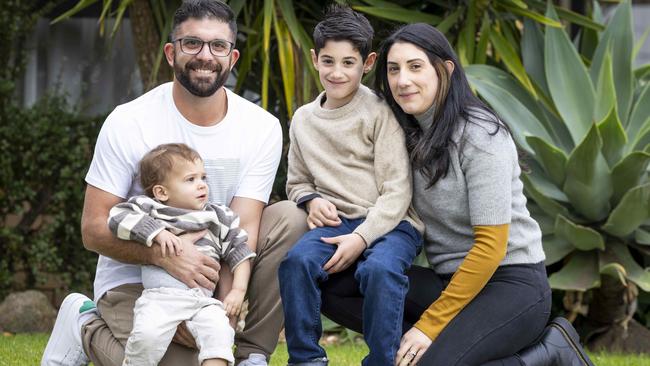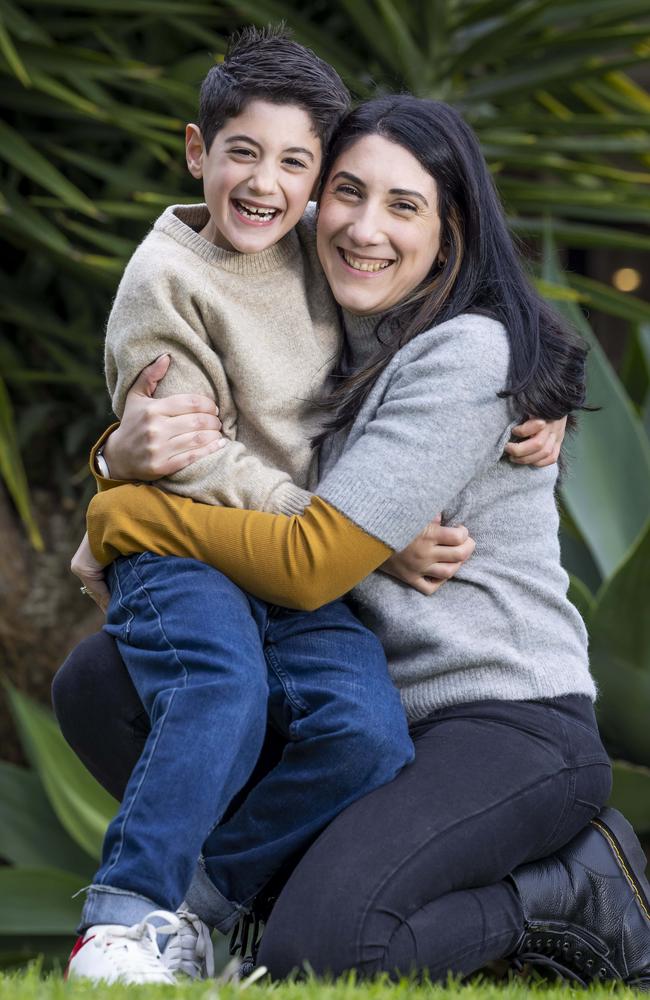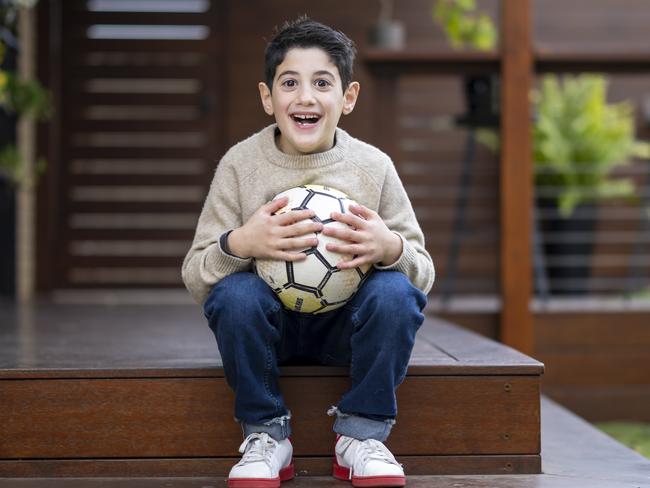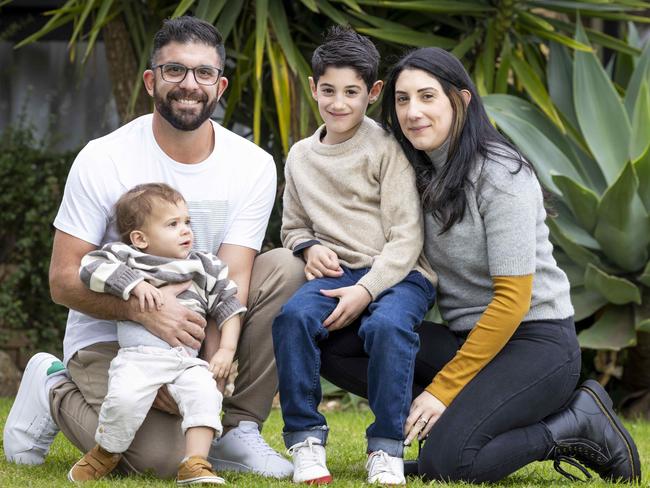Born with a rare genetic disease, Noah in fight for better future
Little Noah was diagnosed with a deadly genetic disease nicknamed childhood dementia because of its devastating symptoms. But his family are determined to fight for his future.

Health
Don't miss out on the headlines from Health. Followed categories will be added to My News.
It was a chance discovery by a diligent emergency room doctor that would change Deanna and Andrew Carpino’s world.
The Melbourne couple had raced their eight-month-old son to the Royal Children’s Hospital with suspected pneumonia.
As the doctor checked little Noah’s abdomen Mrs Carpino said he could feel his spleen.
“And that wasn’t normal,” she said.
“That symptom set us on a path of why, and saw us move around various hospital departments for the next six months looking for answers.”
She said at first doctors suspected cancer.

“I still remember hearing that news,” Mrs Carpino said.
“It was our last appointment before Christmas and our normal clinician was on leave. We were asking how it was all going and honestly just kind of waiting to be told that it was all a big misunderstanding.”
She said to learn the medical team was investigating cancer was “mind blowing”.
“I don’t think it was until that moment that I started taking it seriously,” Mrs Carpino said.
The diagnosis they eventually received when Noah was 15 months old hit hard.
Noah had Niemann-Pick disease type C (NP-C), a rare progressive genetic disorder characterised by an inability of the body to transport cholesterol and other fatty substances inside cells.
In plain language Noah, now 7, has an abnormal accumulation of these substances within various tissues of the body including his brain, liver and other organs.
NP-C is known colloquially as “childhood dementia” because of what it does to the body. It makes it fail with symptoms ranging from cognitive decline, rapid eye movement and the inability to walk or speak.
As the young couple took in that devastating news, they were told there was no cure. They would later learn the disease was fatal with fewer than 30 children in Australia with the condition, only six living in Victoria.

“The way they explained it was NP-C was genetically inherited so it meant that both myself and my husband Andrew must have a carrier gene,” Mrs Carpino said.
Last year the Carpino family welcomed a second son, Valentino. They had planned to turn to IVF to avoid passing on the genetic disorder only to discover they had already fallen pregnant naturally. Despite their fears, Valentino does not have NP-C and Noah is a proud big brother.
“He is doing well and has started grade two,” Mrs Carpino said.
She puts that down to daily medication that is subsidised, but would otherwise cost around $6000 a month to keep him alive and his symptoms at bay for now.
In 2019 Mrs Carpino joined the Australian NP-C Disease Foundation to help raise money for research and to raise awareness.

The foundation was established by Benalla mother Mandy Whitechurch after her two sons both received NP-C diagnoses as teenagers.
Mrs Whitechurch said doctors told her to go home and “make memories” because there was nothing they could offer her boys.
“The degenerative nature of this disease means it’s too late for my boys now, but I’m hopeful that with advancing research that there will be a better future for Deanna’s son and the other NP-C families,” she said.
The Foundation says while there is no cure yet, there is alway hope with several clinical trials now investigating new therapeutic options for patients.
The foundation raises funds for research at the Florey Institute. It will host its annual fundraiser on Saturday 22 June at 7pm in Port Melbourne.
For details visit: https://www.npcd.org.au/minds-in-motion
AT A GLANCE
• NP-C is a degenerative disease that affects about one in 95,000 births
• It has an average lifespan of 10 years from the first neurological symptom
• Symptoms can include rapid eye movement, an enlarged spleen, cognitive decline and the inability to walk and speak




